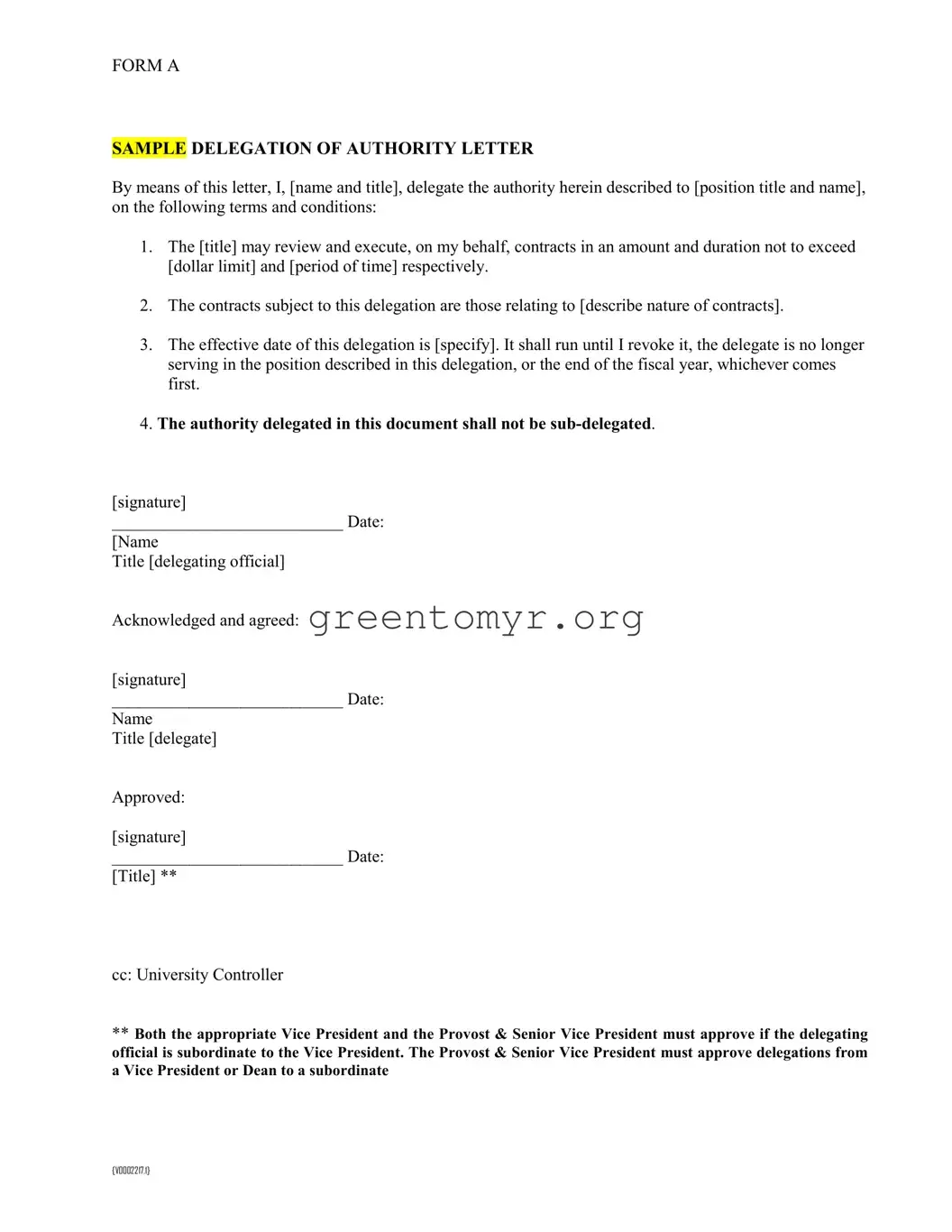FORM A
SAMPLE DELEGATION OF AUTHORITY LETTER
By means of this letter, I, [name and title], delegate the authority herein described to [position title and name], on the following terms and conditions:
1.The [title] may review and execute, on my behalf, contracts in an amount and duration not to exceed [dollar limit] and [period of time] respectively.
2.The contracts subject to this delegation are those relating to [describe nature of contracts].
3.The effective date of this delegation is [specify]. It shall run until I revoke it, the delegate is no longer serving in the position described in this delegation, or the end of the fiscal year, whichever comes first.
4.The authority delegated in this document shall not be sub-delegated.
[signature]
___________________________ Date:
[Name
Title [delegating official]
Acknowledged and agreed:
[signature]
___________________________ Date:
Name
Title [delegate]
Approved:
[signature]
___________________________ Date:
[Title] **
cc: University Controller
**Both the appropriate Vice President and the Provost & Senior Vice President must approve if the delegating official is subordinate to the Vice President. The Provost & Senior Vice President must approve delegations from a Vice President or Dean to a subordinate
{V0002217.1}
